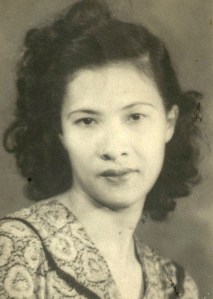
Panoramic View of Tarauacá – State of Acre – North Brazil
Birthplace of Brazilian poet J.G. de Araújo Jorge
Source: Blogspot Tarauacá 100 Years (1913-2013)
My Poetry Corner August 2015 features the poem “Filosofia” (Philosophy) by Brazilian poet José Guilherme de Araújo Jorge (1914-1987), a favorite poet among the people, especially the youth, for his romantic lyricism and socialist message. His romantic poetry speaks to lovers who had loved and lost.
The following stanzas from two of his romantic poems, titles unknown, were sourced from the Brazilian literary website, Pensador (Philosopher).
Seems like madness
How to explain the truth
that love, that lasts for such a short time
hurts me for an eternity.
You think you love several times…
Delusion, pure delusion,
the strange miracle of the human heart
I found difficult to understand,
and perhaps still don’t comprehend:
– Every time we love
It’s like the first time…
In his 1969 publication, No Mundo da Poesia (In the World of Poetry), J.G. de Araújo Jorge confessed that love was his most important poetic theme. Love is life. “Poetry without life, is like the paper flower, or of plastic material,” he wrote. “It lacks sap, lushness, perfume. It won’t be honey or fruit. It won’t know birds or bees. It’s a sad imitation.”
He also considered himself a modern poet who communicated with the people of his time, interpreting their hopes, anxieties, and despair. “If young people read my verses and know them by heart, and write them in their notebooks, and buy my books, then I’m not only a modern poet, of today, but a contemporary of the future, because I’m already addressing tomorrow.”
A political activist since his student days when he was detained in 1937 by the military government, J.G. de Araújo Jorge became a member of congress during the 1970s. During his lifetime, his social and political poems were highly disputed.
In O Poeta Na Praça (The Poet in the Square), published in 1981, he stated that there’s no incompatibility between the poet and the politician. As examples of lyrical poets who were great political leaders, he mentioned Lorca, Neruda, Mao Tse-tung, and Ho Chi Minh.
In the following excerpt from his poem, “Ordem do Dia” (Order of the Day), the poet calls attention to the social inequality of his time, an issue still relevant today in Brazil and across our planet.
We fight because – all of us – whites, blacks and yellows,
we cry and eat, we grow and study,
we suffer and build, like men without color,
we all need the same white milk
and the same book, and the same earth, and the same freedom to live.
To live. Or at least, to die, but fighting.
In the second stanza of the featured poem, “Filosofia” (Philosophy), the poet muses:
People say they’re rich… Maybe…
But then again maybe not…
To be rich…is just to be able
to do whatever your heart desires…
To read the complete poem in its original Portuguese and my English version, and to learn more about the poet, go to my Poetry Corner August 2015.









